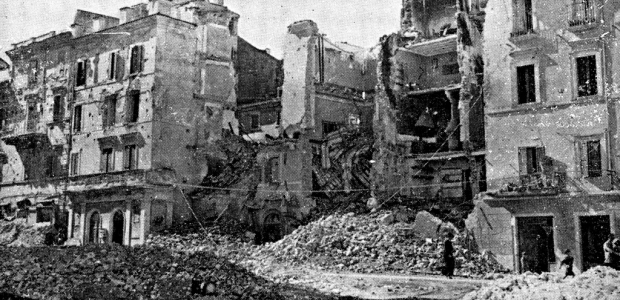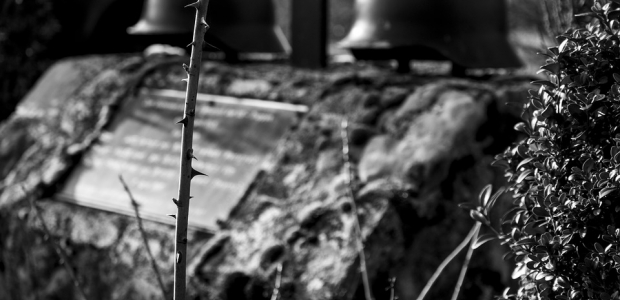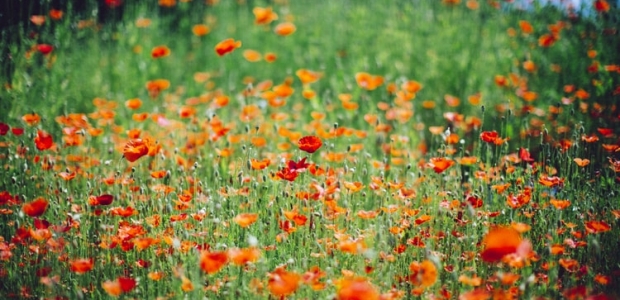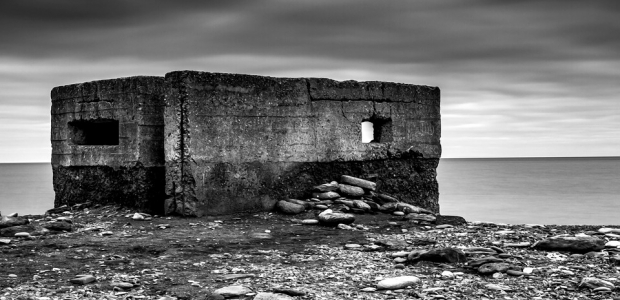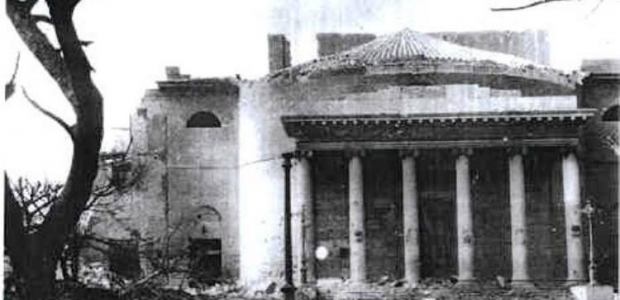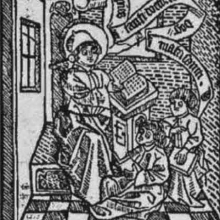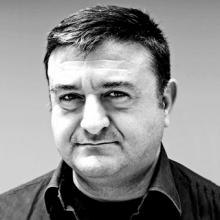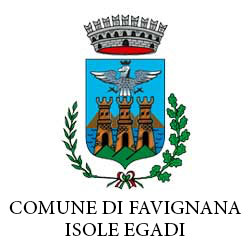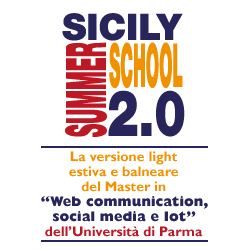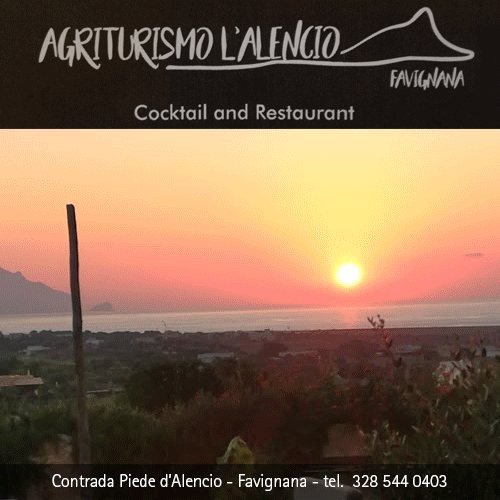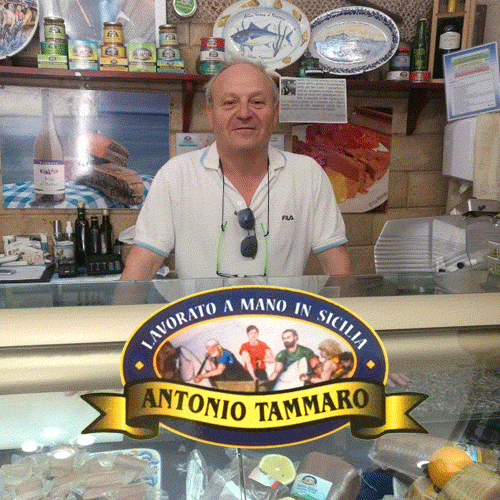Languages
War
Tale written during the creative writing course of the Sicily Summer School 2019
«‘A verra è verra pi’ tutti ».
Mom used to repeat it every morning, with a mixture of pain and disbelief, when we crossed Largo delle Sirene to attend to the day houseworks. There was always something to be amazed: Chistians who all looked down from above and now begged for bread; respectable, young widows who paraded under the voracious eyes of German soldiers. They weren't always young, actually, or even widows.
It was war for everyone, even for us. The name of our family competed in fame with those of the Trapani most illustrious families. Our company, a small fish preservation industry, employed a dozen family fathers before the war, but had been closed for months. Even our putìa in Via Carolina was close to suffering the same fate. My family and I lived not far from this, in a small house that faced, along with those of my aunts and that of my grandfather, on a paved courtyard where we had lunch and dinner all together in the summer. It was one of the few things that the war had not taken away from us. A long horseshoe table was being prepared, to which we all sat together.
Mom had two sisters and a brother. Uncle Paolo, besides being the only male, was also the smallest of them: he was just ten years older than me, and I had grown attached to his legs. Among the five grandchildren, I was his absolute favorite and never missed an opportunity to point this out and create jealousy between us children.
Uncle Paolo was a thin and strong boy, with thick dark curls and a big smile that enchanted. The sisters had raised him as a son: they were left motherless when he was very small.
His grandfather, then, loved him in a special way: Uncle Paolo was his pride, the desired son after the three girls. It was his whole life.
At the outbreak of the war, Uncle Paolo had just turned nineteen. The grandfather did everything he could to save him from the call. Letters, telegrams, recollections. He tried any way. He also risked getting into trouble when he once offered a big gift to a powerful party affiliate. But in the end, there was nothing to be done: the postcard arrived anyway. I remember that the end of the world broke out: tears, prayers, recommendations to all the saints. I had the feeling that, until that moment, the war had only touched us. Now it really had broken out.
Uncle made fun of everyone. "You are already crying for a dead man!" In the days of preparation for departure, he often performed in grotesque scenes in which he always involved me. His favorite was that of the bisito: he lay in bed, on his back, with his arms crossed over his chest, and I had to stand at his bedside with flowers in his hand and a black mother's handkerchief on his head, to pity him. It always ended that one of the women of the house chased us away by throwing a tappina at us.
Finally, the day of the detachment arrived. The whole family gathered in the courtyard for greetings. When my turn came, Uncle bent down to hug me, and squeezed me tight. He left a kiss on my hair, and for the first time in those days I felt like crying.
The grandfather wanted to accompany him alone to the station. When he returned home, he was taciturn, with a drawn tight face.
His old face only revived when the letters arrived. From time to time it was a leap for everyone because everyone always feared the worst.
When uncle finally obtained his first license and returned home, it was a big party: in those few days, foods that had not been seen for months reappeared on our table. The grandfather, radiant, never left his son.
The uncle was thinner, but he was fine. He told little about where he had been and what he had done. He looked tried, but was happy to be home again. Despite the bombings and hardships, in those days, there was always something to smile about.
Before leaving, my uncle squeezed me hard. I clung to his neck, asking him not to leave me. But he left again, and with him, life and joy disappeared from our home.
Winter passed slow and cruel. There was hunger everywhere. They were sad days.
After three months, finally, another license. This time my uncle came back with crutches and some wounds, with a thin lean face.
The injuries were not serious; after a few days, we realized that it was not one of those we had to worry about. He had no appetite, and spent most of his time locked up in his room, in bed, in the dark. Despite everyone's efforts, they couldn't get him out of the house. He had become solitary and uninhibited. He didn't even look like my uncle. I could only drag him into the yard, with the excuse of having his leg trained in convalescence. He looked twenty years old.
Una volta sentii il nonno chiedergli cosa fosse successo. Lui lo guardò con occhi vuoti. «A’ verra fa schifo», disse solamente, con un filo di voce.
Once I heard the grandfather ask him what had happened. He looked at him with empty eyes. «A’ verra fa schifo» ("The war sucks") he said only in a faint voice.
Within a few weeks, the wounds healed completely. The doctor said he could leave.
It was a very hot day in July. I helped my mother wash the dishes in the courtyard, in the big marble pile, while her aunts settled. Grandpa was dozing in the chair, in the shadow of the climbing vine.
Suddenly, the quiet was torn by a deafening bang. In a fraction of a second I thought of bombs, planes, tanks. Instinctively, I ran to huddle against the door jamb of the house. The little girls screamed, frightened. Grandpa awoke, looking around.
I don't know how he understood. Something in him had suddenly snapped, simultaneously with that deafening detonation. "Paolo," he said only, and rushed into the house. Moments later, we heard a cry. I stayed where I was, terrified, while my mother and aunts ran towards my grandfather. I heard their cries and tears. "Paolo! Paolo! "They all shouted and cried, and shouted," What have you done, Paolo ?! "
I waited to hear the uncle's voice. My heart beat back in my ears, covering the desperate moans coming from home. I thought of the gun I had seen in my uncle's bedroom one day, when I saw him pass it in his hands, and then hide it under his pillow as soon as he noticed me.
I covered my ears with my hands, and I started to cry too.
Il nonno divenne un fantasma. Ci guardava tutti con distacco, come se non esistessimo neppure.
The only reactions he had were when, in the evening, we heard the news on the radio. From his corner of solitude, we could hear him cursing in a low voice. He shook his head, then, and hid his eyes behind his big, calloused hand.
At the beginning of March, the radio began to give news of riots and unrest in the north of the peninsula, all suffocated in the bud. Still, the rumors that circulated were others.
To the daily speeches new protagonists were added: the American. It was clear that something was changing: there was an air of tension in the streets, it was caught in the strange movements of German soldiers, in the nervousness in their eyes and made them even more hateful and dyed.
Almost a year had passed since his uncle's death, when the news of the British attack on Pantelleria arrived. Terror began to spread not only among the occupiers, but also among the population. Mum started packing for a possible evacuation, which we had avoided until then. In the midst of that restless and unbreathable climate, his grandfather continued to be impassive.
Less than a month later, the Allies landed in Sicily.
A general stampede began. The first to leave were the officers: I saw them leave the city on cars packed with luggage, closely followed by trucks and other military vehicles with simple soldiers. Within a week, no more uniforms around.
Only a handful of soldiers remained in their headquarters, at the Lazzaretto. They made me almost tender: they were all very young, with clean faces, and in those uniforms they seemed out of place and uncomfortable. It was not difficult to understand, even for a child, that they were afraid and that they hated that war just like me.
They too, after a few days, disappeared. The Lazzaretto remained empty and silent.
Qualcuno disse che era rimasto un solo soldato, che adesso si aggirava disorientato e spaventato. «Si l’attrovano l’americani, si lu manciano», era stato l'unico commento del nonno, in un tono del tutto incomprensibile. Quella sua affermazione mi aveva fatto venire u' scanto.
One day, finally, the dreaded tanks entered the city with a great din. Panic broke out, because we didn't know what our fate would be. In a very short time, however, what had seemed the umpteenth invasion, turned into a big party.
The war was over for us.
One night, I woke up because of the heat. I went to the kitchen to get a glass of water, and I saw a shadow move in the courtyard. I pulled the window curtain back a little, and almost screamed. Although dirty and crumpled, I recognized the German uniform on what looked like little more than a boy. He looked around in fear. Then, I saw the grandfather.
At first, I couldn't understand what was happening. Grandpa passed something to him.
"Veni ccà, cànciati" ("Come here, changed"), he said in a low voice. That obviously could not understand him, but he certainly understood the gestures. Intrigued, I watched the scene. The boy hastily undressed his uniform, and dressed himself with what his grandfather had given him.
With a sinking heart I recognized, from the initials on the pocket, one of the uncle's shirts. My eyes began to burn: that boy had the same stature, the same build. In the twilight of the night, he really looked like my uncle.
Grandpa approached the soldier and adjusted his shirt collar. Then he looked at him and caressed his face roughly. «Figghio meo ...». His voice was broken by emotion.
Hidden behind the curtain, I watched them hug.
His grandfather helped him escape, and no one ever knew anything.
Broken by the pain of having lost a son, he had saved another's son.
He had won the war.
